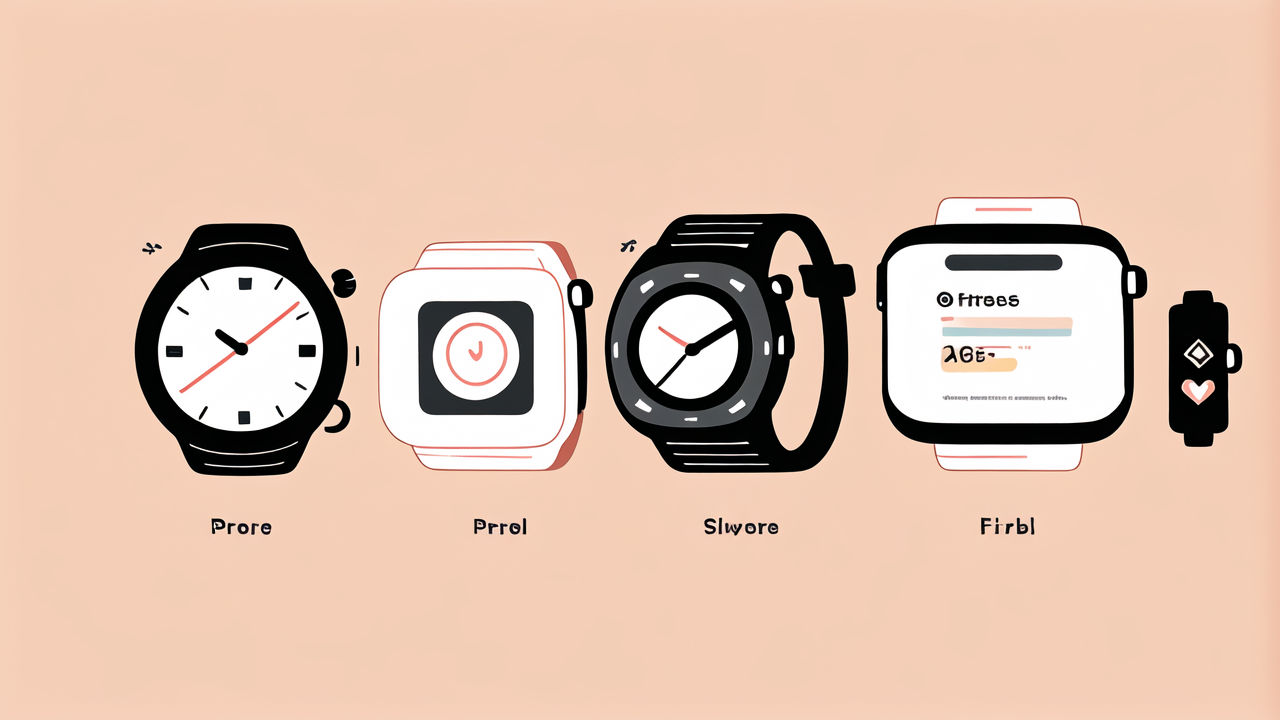The Rise of Smart Watches: A Fusion of Style and Technology
The Evolution of Wearable Technology
Wearable tech has come a long way. It started with basic fitness trackers. Now, we have smart watches. These devices do much more than tell time. They monitor health, send messages, and even make calls. The journey began with clunky designs. Today's smart watches are sleek and stylish. They blend seamlessly with our daily lives. This evolution shows how tech and fashion are merging. Smart watches are no longer just gadgets. They're fashion statements too.

How Smart Watches are Reshaping the Accessory Market
Smart watches are changing how we think about accessories. Traditional watches face tough competition. Many people now prefer smart watches for their added features. These devices offer both style and function. They come in various designs to suit different tastes. Some look like classic timepieces. Others embrace a more modern look. This variety appeals to a wide range of consumers. As a result, the accessory market is shifting. Retailers are adapting to include smart watches in their offerings.
The Impact of Smart Watches on Fashion Trends
Smart watches are influencing fashion trends. Designers are creating outfits with tech in mind. We see clothes with special pockets for smart devices. Some fashion brands now offer their own smart watch lines. This shows how deeply tech has penetrated the fashion world. Color trends in fashion often match popular smart watch shades. The fusion of tech and style is creating new aesthetic norms. It's changing how we accessorize and express ourselves through fashion.
Key Players and Innovations in the Smart Watch Industry
Leading Brands in the Smart Watch Market
Several brands dominate the smart watch market. Apple leads with its Apple Watch series. Samsung follows closely with Galaxy Watch models. Fitbit, now owned by Google, focuses on fitness features. Garmin is popular among sports enthusiasts. Each brand has its unique selling points. Apple emphasizes seamless integration with iPhones. Samsung offers compatibility with various Android devices. Fitbit excels in health tracking. Garmin stands out for its robust outdoor and sports features.

Innovative Features and Designs of Smart Watches
Smart watches are constantly evolving. New features appear regularly. Some watches now offer ECG monitoring. Others have fall detection for safety. GPS tracking is common in most models. Many smart watches are water-resistant. This makes them suitable for swimming. Design-wise, we see a trend towards customization. Users can change watch faces to match their mood or outfit. Some watches have rotating bezels for easy navigation. Others use voice commands for hands-free control.
Partnerships and Collaborations in the Smart Watch Sphere
Collaborations are driving innovation in smart watches. Tech companies partner with fashion brands. This results in stylish, functional devices. For example, Apple worked with Hermès. They created luxury versions of the Apple Watch. Fossil collaborates with various fashion labels. They produce smart watches under different brand names. These partnerships blend tech expertise with fashion sense. The result is smart watches that appeal to style-conscious consumers. Such collaborations help smart watches reach new market segments.
The Future of Smart Watches in the United States Market
Market Predictions and Consumer Behavior
The smart watch market in the US is growing rapidly. Experts predict continued expansion. Consumers are becoming more health-conscious. This drives demand for fitness tracking features. Many see smart watches as essential daily tools. Young adults are the biggest adopters. However, older generations are catching up. Price points are diversifying. This makes smart watches accessible to more people. Battery life improvements are addressing a key consumer concern. As 5G networks expand, smart watches may become more independent from smartphones.

Regulatory Impacts on the Smart Watch Industry
Regulations play a crucial role in the smart watch industry. The FDA oversees health-related features. This affects how companies market their devices' medical capabilities. Data privacy laws impact how smart watches collect and use information. The California Consumer Privacy Act is one example. It gives users more control over their data. These regulations shape product development and marketing strategies. Companies must balance innovation with compliance. This can sometimes slow down the release of new features.
Ethical and Privacy Considerations for Smart Watch Users
Smart watches raise important ethical and privacy questions. They collect vast amounts of personal data. This includes health information and location data. Users must consider how this data is used and shared. Many worry about potential breaches or misuse of information. There's also concern about the accuracy of health data. Some fear over-reliance on smart watches for medical insights. Users should be aware of their device's privacy settings. It's important to understand what data is being collected and why. Balancing the benefits of smart watches with privacy concerns is an ongoing challenge.




Leave a comment
This site is protected by hCaptcha and the hCaptcha Privacy Policy and Terms of Service apply.